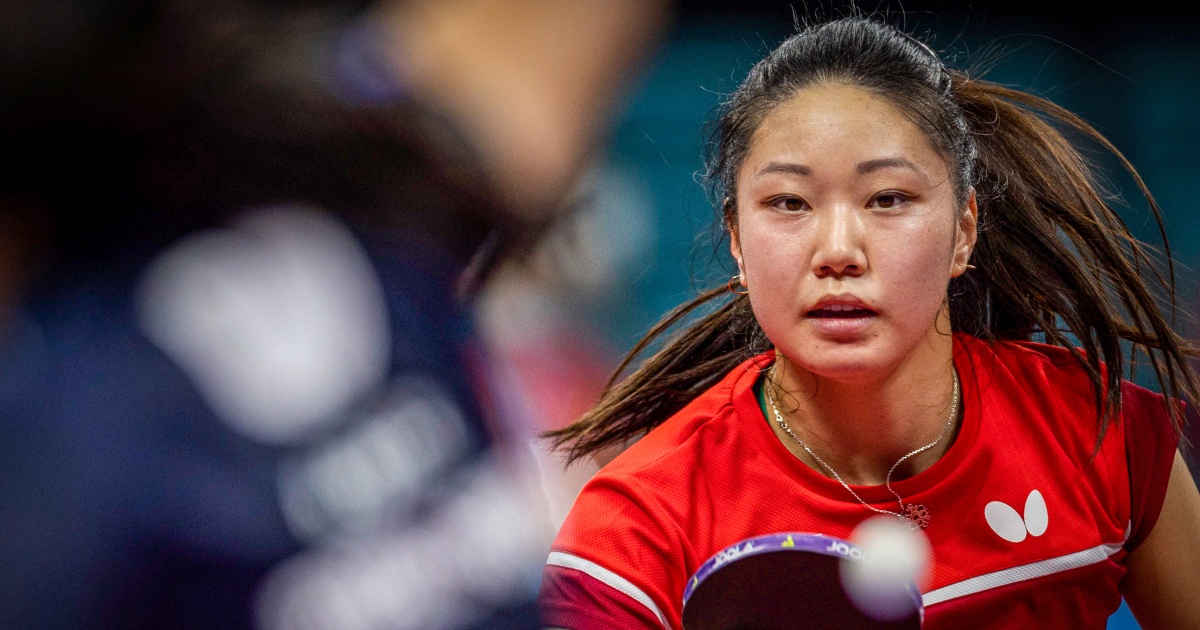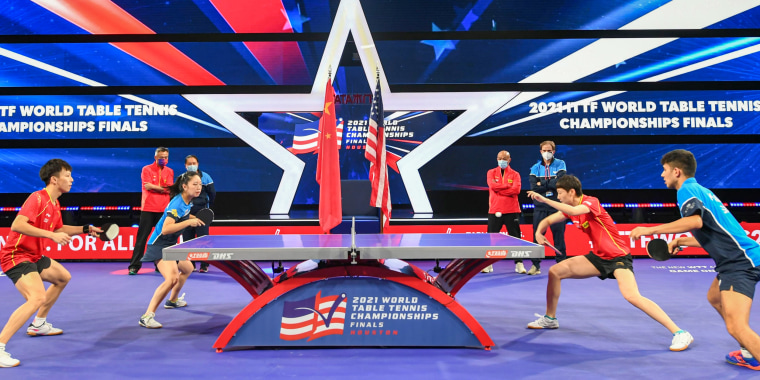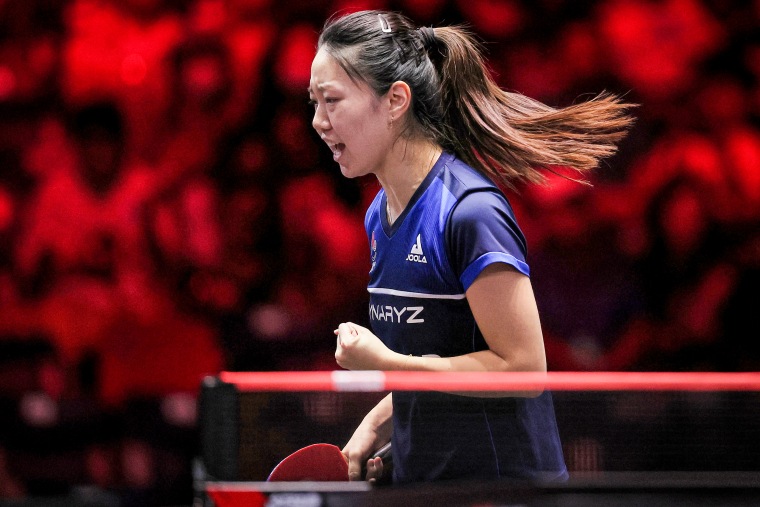Sports
Why is Olympic table tennis respected in Asia but not so much in the U.S.?

With Team USA table tennis heading to the Paris Olympics, its members are looking to net more love for their craft.
Members of the Olympic team say that though table tennis has long enjoyed popularity around the world, particularly in Asia, it continues to lack the respect and interest that basketball and other more mainstream sports command in the U.S. As the all-Asian American roster looks forward to playing on the world stage after Friday’s opening ceremony, pros Kanak Jha and Lily Zhang said they’re hoping to drive more awareness and smash misconceptions around the game.
“A lot of people — they don’t really understand the sport, which is why they might not respect it as much as other traditionally American sports,” Zhang, 28, told NBC News. “They don’t realize how much physicality and athleticism and mental training goes into table tennis.”
Jha and Zhang, along with teammate Amy Wang, will begin competing Saturday, when the singles matches kick off, hoping to bring home the United States’ first medal in the sport.The all-Asian American team reflects table tennis’ popularity in the community, one that’s been growing for the past few decades. Experts have mentioned that as people from China, India and other Asian countries, who value the sport, immigrate to the U.S., their children are in large part leading the charge in drawing more eyes to it. They’ve led to more complexes being built and bigger dreams in the field.
Still, however, most in the U.S., including some within the Asian American community, continue to regard table tennis as a hobby played in family basements or at bars, rather than a game that requires rigorous preparation, the athletes say. Jha, who moved to Europe at 15 years old to pursue table tennis professionally, said the sport involves heavily physical and tactical aspects. So his training regimen is no joke, involving a mix of “explosive” speed training and strength training like weightlifting.
“Your legs need to be, in particular, extremely fast and explosive. And you require a lot of heavy rotation as well, especially because you’re rotating side to side. You need a very strong core,” Jha, 24, explained. “Everything is reacting in milliseconds. … A lot of athletes focus on their reaction time, they work on reflexes, they work on balance and coordination, they work on endurance.”

Zhang similarly said she maintains a strict regimen, practicing different drills that key in on footwork technique and game strategy in addition to regular hourslong sessions at the table. She also keeps a healthy diet, getting the protein, grains and carbs needed to perform, without forgetting the good stuff, she said.
“As an Asian American, I feel like food is such an important part of our culture,” she said, laughing. “I like having a little treat for myself — going to get boba, Korean barbecue and hot pot.”
When fans watch table tennis, it’s immediately apparent just how demanding and captivating it is, Zhang said. But part of what’s been holding the sport back is the lack of funding and media attention, she said.
“I don’t know if it’s because we have never been able to medal in the sport,” Zhang said. “But then it becomes a cycle. If we don’t have the funding, it’s hard to improve and grow the sport to be able to medal. We can never really burst out of that bubble.”

Jha noted that the sport is also much more difficult to access in the U.S. Without table tennis teams in schools to pique kids’ interest, many aspiring pros are left investing in coaches or seeking out clubs themselves. In his case, Jha, who is originally from Milpitas, California, said when he was starting out, his coach happened to have moved near his house. Later on, his parents gave him their blessing to move abroad to better pursue the sport.
“There is a degree of luck involved — that you live in a place where there are clubs and perhaps there’s also coaches who are in a high-enough level to teach you proper technique, footwork and the technical skills involved,” Jha said. “It’s a private lesson-based sport in the beginning, which makes it not accessible to too many kids. They need parents that will financially invest in them.”
Zhang said that with little publicized about the team, she’s endured some difficult moments at the table.
“There’s a lot of misconceptions that we’re not true Americans. I’ve experienced a lot of comments from people or even on social media, where people were like, ‘Of course, the U.S. imported these people from China,’” Zhang said. “They don’t understand we were born here. We were raised here. We grew up here. We’re just as American as any other athlete on the team.”
Now, she has a chance to help change that perception, one point at a time.
“Being able to represent the U.S., if that even helps one young boy or young girl out there see me and realize that they can also do that, or feel more represented out there, I think that’s a beautiful thing,” Zhang said.
For more from NBC Asian America, sign up for our weekly newsletter.










